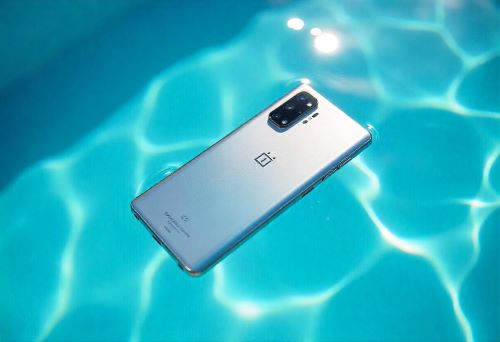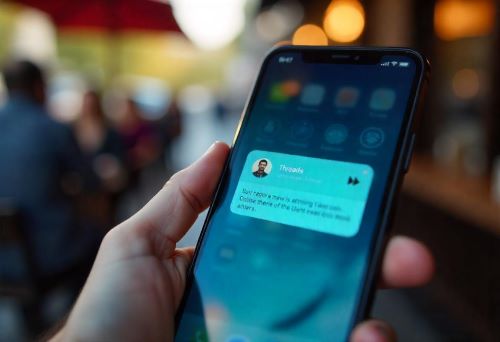U.S. Lawmakers Raise Concerns Over OnePlus Phones Sending Data to China , In a move that could intensify tensions between the United States and Chinese tech companies, U.S. Representatives John Moolenaar (Republican, MI) and Raja Krishnamoorthi (Democrat, IL) have urged the U.S. Department of Commerce to investigate smartphone manufacturer OnePlus over allegations of collecting user data without explicit consent. The controversy revolves around claims that OnePlus smartphones may be transmitting user data to servers owned or operated by entities in China, potentially putting American users’ privacy at risk.

📱 All Smartphones Collect Data — Why Single Out OnePlus?
Similar Practices Across the Industry
While the focus is currently on OnePlus, data collection practices are common across the smartphone industry. Be it Google’s Pixel, Apple’s iPhone, or even Motorola devices, almost all modern smartphones collect certain types of data to:
- Improve AI and user experience
- Enable targeted advertising
- Enhance system performance
Data Collection Includes:
- Location tracking
- App usage patterns
- Search history
- Battery usage data
- Voice input commands
The only difference in this case is the origin of the company and its perceived geopolitical affiliations.
🌐 Data Allegedly Sent to Chinese-Controlled Servers
The lawmakers’ request to the Commerce Department is based on a commercial analysis that suggests OnePlus devices are transmitting sensitive data to servers with links to China. However, there has been no public release of this analysis, and independent verification is still pending.
What the Report Allegedly Claims:
- Data is collected without clear user consent
- Some servers handling the data are Chinese-owned or China-based
- The practice may violate U.S. privacy expectations
Despite this, no definitive evidence has surfaced that proves the data is being used for surveillance or any activity beyond what other tech giants already do.
🧠 OnePlus Responds — Or Doesn’t
At the time of writing, OnePlus has not issued a formal response to the allegations. This silence has only added to the speculation surrounding the issue. The company’s headquarters are based in Shenzhen, China, which further complicates the optics.
🇺🇸 Political Undertones in the OnePlus Controversy
Ongoing Tech War Between U.S. and China
This investigation doesn’t exist in a vacuum. The U.S. has already taken actions against major Chinese firms like:
- Huawei – blacklisted from U.S. networks
- TikTok – facing potential bans due to its Chinese ownership
- DJI – restricted for potential surveillance risks
China: The Common Enemy in Bipartisan Politics
Both Republican and Democratic lawmakers have consistently framed Chinese technology firms as national security threats. This narrative aligns with a broader strategy to limit China’s growing technological influence.
⚖️ Is It Really About Data — Or Just About China?
Hypocrisy in Tech Privacy?
Experts suggest that if OnePlus were based in the U.S. or Canada, these same data practices would likely go unnoticed. The key issues here seem to be:
- Who controls the data?
- Where is it stored?
- Which government has jurisdiction over it?
The reality is that Amazon, Google, Meta, and other tech giants collect equally intrusive data, yet face far less regulatory backlash.

🛡️ What Should Smartphone Users Be Worried About?
Regardless of brand or nationality, user privacy remains a global concern. Here’s what users should be aware of:
Data You Might Be Sharing Unknowingly:
- Contacts and call logs
- Voice recordings (via assistants like Google Assistant or Alexa)
- Location history
- In-app behavior and browsing patterns
How to Protect Yourself:
- Disable unnecessary permissions in app settings
- Avoid installing apps from unknown sources
- Use VPNs for added security
- Review privacy policies before granting access
- Install privacy-focused apps like firewalls and trackers
🧾 Summary: Is OnePlus Guilty or Just the Latest Target?
Here’s a breakdown of the current OnePlus controversy:
🔸 Allegation: OnePlus collects sensitive user data without clear consent
🔸 Accusation: Data may be sent to China-owned or Chinese-linked servers
🔸 Evidence: Based on commercial analysis, not yet publicly verified
🔸 Response from OnePlus: None as of now
🔸 Reality: Most smartphones collect data; OnePlus is not alone
🔸 Motivation: Possibly geopolitical, given the focus on China
📝 Final Thoughts: A Wake-Up Call for All Smartphone Users
While OnePlus may be under fire, the larger issue at hand is the lack of comprehensive global data privacy laws. Whether it’s Samsung, Apple, or OnePlus, every tech company has the power to monitor its users — and often does.
The government must:
- Apply equal scrutiny to all tech firms, regardless of country
- Enforce clear and transparent data privacy rules
- Avoid politicizing privacy for short-term diplomatic goals
Until then, user awareness remains the first line of defense in protecting personal data.
Tags: OnePlus Data Privacy Issue, OnePlus vs U.S. Lawmakers, Smartphone Data Tracking, China Tech Ban, U.S. Commerce Department Investigation, OnePlus Controversy 2025, Mobile Privacy Concerns





